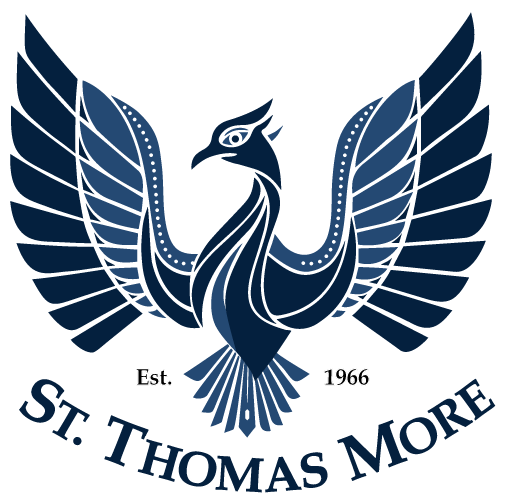St. Thomas More Parish was established on October 2, 1962 by a formal decree signed by Archbishop Thomas Connelly, of the Archdiocese of Seattle. Construction of the parish church and school was completed in the summer of 1966, with the first mass celebrated on July 31,1966.
The sisters of Notre Dame de Namur agreed to staff the parish school and moved into the convent in August. Classes at St. Thomas More School began in September of 1966 for 1st, 2nd and 3rd Grades. The four Sisters taught 120 students that first year of school. The first uniforms were in green and now they are blue. Additional grades were added each year until eventually the school included Kindergarten through Eighth Grades.
The facility was expanded in 1995 to provide a full size library, science lab, state-of-the-art computer lab, music room and counseling room.
In 1998, an Extended Care Enrichment Program was established to provide before and after school care for students. In 1999, the school became fully accredited by the Northwestern Association of Schools and Colleges, and the Western Catholic Education Association.
Today, our staff of nine classroom teachers has been joined by music and physical education specialists, a librarian, computer teacher, multi-sensory learning specialist, preschool and remediation teachers and a school counselor. Extra-curricular activities include: Drama, Speech Teams, Chess, Choir, Band and Lego League.
Over the last 16 years, there have been three Long Range Plans implemented that define the future of our school. During these years, new programs and structures were added to the school including a playground structure, new basketball hoops and a grass athletic field installed. In 2006, Preschool became a part of our program and in 2015 they moved into a spacious new location at the north end of Dalton Hall. Technology has been upgraded to include up-to-date digital access for students and management systems for staff. Students are accessing World Language in grades three through eight and every student continues to excel in public speaking and speech presentations. A strong Catholic Identity remains an ever present focus of all we do.
St. Thomas More School prepares all our students to be active faith-filled citizens well into the 21st century.
St Thomas More School
Living the Real Presence of Christ



